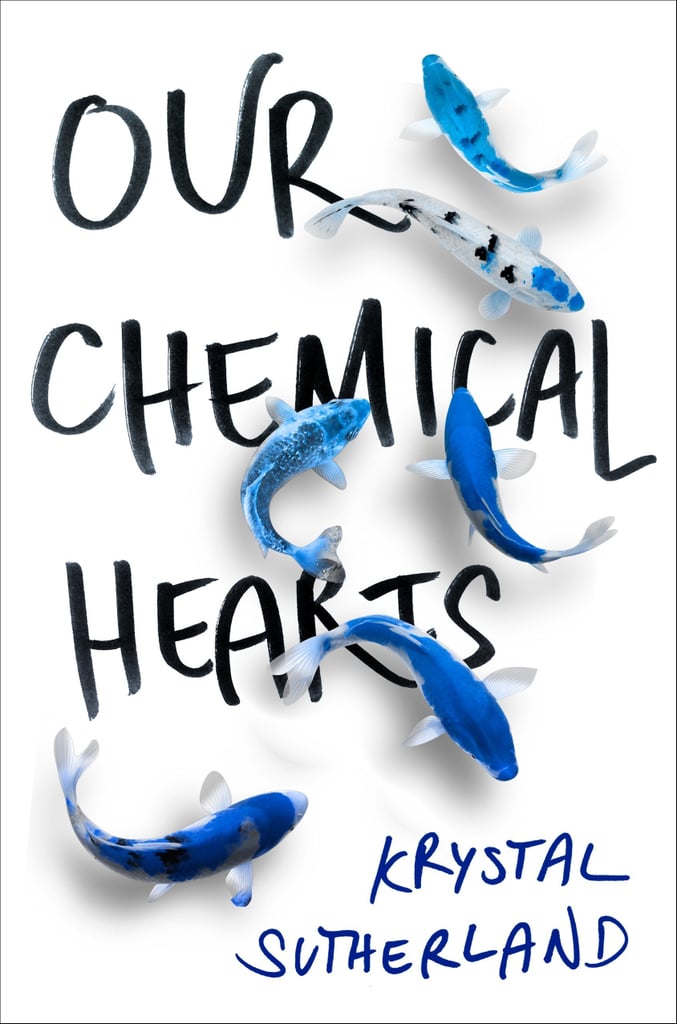
I'm guessing that's due to the physical reaction of seeing someone who you find attractive or are already in love with causing your heart to race and maybe feel like it's skipping a beat. Most common thinking regarding love is that it originates in the heart. But with her not having fully recovered from a past tragedy that's left her with physical and emotional scars, Henry tries to help her sort through her issues but finds himself frustrated at times by the complicated situation.

Despite her being aloof and standoffish toward him, Henry is instantly smitten and the two eventually become friends and then lovers. He gets that gig but must share some of those duties with recent transfer student Grace Town (LILI REINHART). Henry believes that nothing remarkable has occurred in his life, with his only desire for the year being named editor-in-chief of the school newspaper. Henry Page (AUSTIN ABRAMS) is a high school senior with two best friends in Kem (ADHIR KALYAN) and Suds (SARAH JONES), who likes classmate Cora (CORAL PENA). QUICK TAKE: Drama: A high school senior ends up romantically involved with a new transfer student who's suffering from physical, emotional, and psychological scars stemming from a recent tragedy. Chemical Hearts opens with a quote: "You're never more alive than when you're a teenager." The line works as almost a caveat, a way of justifying character actions or emotions that might come across as, well, unrealistic.(2020) (Austin Abrams, Lili Reinhart) (R)

This is captured in the generally vivacious background characters, whose stories unfortunately go largely unexplored. The problem is that the film wants to generalize about teens, yet Grace is the exception rather than the rule. The lead actors (Lili Reinhart and Austin Abrams) both offer sensitive performances that capture the hole Grace finds herself in and pulls Henry temporarily into. Chemical Hearts conveys that mood in its languid pace, memorable nighttime scenes at an abandoned mill, a graveyard, and a Halloween party, and visual analogies like Grace's leg scars and Henry's broken ceramics. The books - The Catcher in the Rye and Ordinary People among them - have something else in common: they portray the teen years as generally sad and ultimately scarring. One telling scene is when Grace discovers a suicide theme in the books on a teacher's syllabus.
Henry page chemical hearts movie#
This movie misses an opportunity to craft a more realistic portrayal of the teen years, which seems to be its intention, by striking an excessively melancholic tone. Language includes "bulls-t," "s-t," "f-k," "sucks," "dope," "God." To stay in the loop on more movies like this, you can sign up for weekly Family Movie Night emails. Grace says she used to be a "beer pong champion" and another student mentions acid. At a party, Henry smokes "kush" from a pipe and says he's "trashed." Other teens drink out of red plastic cups. Two girls kiss after admitting how much they like each other, even though one of them expresses confusion and says she's "hooked up" with a lot of other girls.

Grace is more experienced than Henry, and she asks if he has a condom then puts it on him. They flirt, date, slow-dance, and kiss, then eventually have sex. The two main characters, Henry and Grace, both learn that heartbreak feels the same as physical pain. The high school seniors conclude that the teen years are painful as they rip you away from the safety of childhood, while adults are just scarred children who made it out. Parents need to know that Chemical Hearts depicts teenagers dealing with grief, trauma, heartbreak, sexual awakening, drugs, alcohol, and the death, by accident or suicide, of peers.


 0 kommentar(er)
0 kommentar(er)
